PAST PROJECT
Culture of conflict 3.0
Learning spaces and media for young people to deal with internet violence and hatred
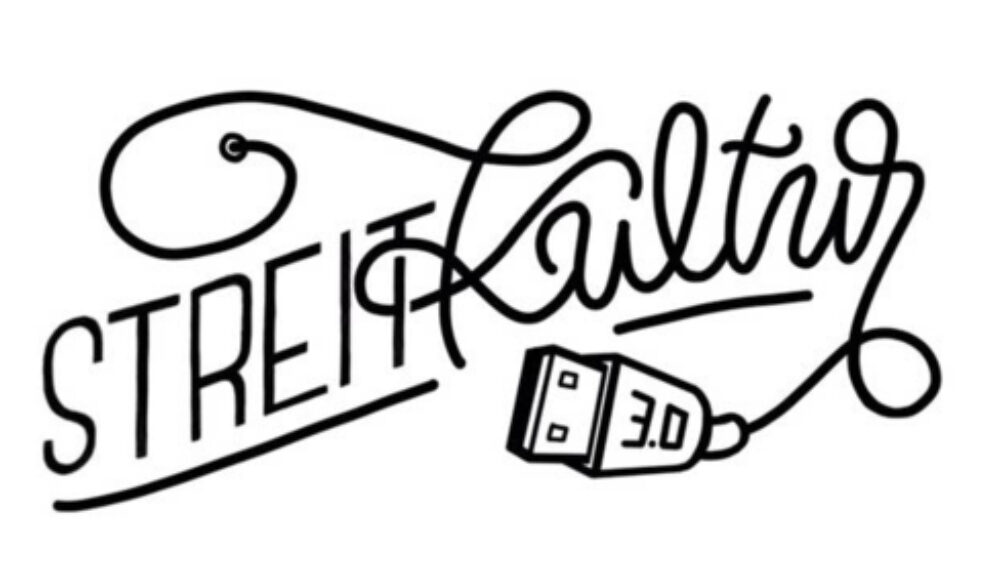
Using innovative methods, the project strengthens the media and information competence of young people and supports the development of skills, which enable them to critically consume media.
Timeframe: 2017 - 2019
The use of internet and smartphone have an extensive impact on the formation of identity in young people. The web is not only a tool for communication, but also the first point of reference for information on current events. Social media confronts children and youth early on with images and reports, that might frighten them. It is difficult to differentiate between opinions and news and between rumours and facts, which allows conspiracy theorists and extremists to instrumentalise media for their cause, stoke fears and even radicalize youth.
The model project Culture of Conflict 3.0 approaches these topics in a dialogue-oriented way: young people are being sensitized to hatred, discrimination and agitation on the web in a participative process and develop strategies, youth-focused approaches and learning media (comic films, app) for dealing with hatred on the web together with the Berghof Foundation team. Using innovative methods, the project strengthens the media- and information competence of young people and supports the development of skills, which enable them to critically consume media. This allows them to participate in an open and democratic discussion culture online. The project will finally design dialogue labs which will be offered for schools and in youth work and which will be conducted by qualified youth (peers) and teachers.
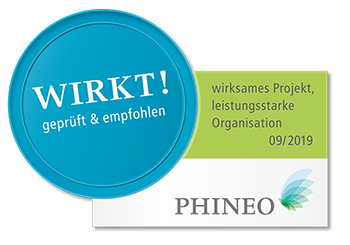
Responsibility online
What does 'responsibility on the internet' mean and why do conflicts online often escalate so quickly?
See more videos below...
Background
Current events such as violence, oppression, terrorism or war are increasingly generating insecurities and fears among young people. The speed of today’s digital media and the growing spread of fake news and hate speech create new challenges for young people, but also for multipliers and teachers. There is more and more disinformation spread on the internet, which cannot always be identified by the users and thus leads to insecurity. At the same time, users create their own filter bubbles in the choice of consumed media, which are further reinforced by algorithms in social media. Algorithms do normally not show controversial contents on social media, so-called echo chambers arise. Filter bubbles create a reliability of expectations and prevent controversial discussions or dialogue with dissenters. The possibility of getting into contact and dialogue with each other is reduced. Both are decisive for the development of democratic values and multi-perspectivity. This makes it all the more important for young people and multipliers to learn critical media competence to counter uncertainty and to develop strategies for dealing with their own filter bubble.
Approach
The project offers young people opportunities ("spaces") to be able to deal critically with information, disinformation and propaganda on the internet that are hostile to democracy and humanity. A youth council participated not only in a dialogue-oriented process to develop learning media in order to strengthen a culture of conflict on the Internet and but also in a peer-group approach, the so called "dialogue labs". This twofold process strengthens young people's media literacy and enables them to act – not only those directly involved in the development processes. The project addresses the needs of the target group of young people (search for evaluation possibilities for information, value orientation and participation possibilities) and places them at the center of the initiated and accompanied learning processes. The open, dialogue-oriented and participatory concept of the project ensures a high level of acceptance among the young people involved, also with regard to the jointly developed learning media and learning opportunities.
The project deals with the following topics (which are also part of the workshops and dialogue labs):
- Fake or fact: On the critical handling of information and opinion forming offers
- Hate and incite: Offers against human contempt, exclusion and violence
- Bots and algorithms: Guidelines for multi-perspectivity instead of opinion-making
- Responsibility online: Contributions to digital ethics
- Commitment online: Strengthening non-violence and democracy
Aims and Outcomes
The learning media created in a participatory process (learning modules, application, animated explanatory videos, guidelines) are disseminated via the internet platform frieden-fragen.de, the project website www.digitale-streitkultur.de, and made accessible to multipliers in training sessions. Young people learn to deal with hatred and violence on the internet, to get involved in a digitial civil society and how to contribute to a democratic culture of conflict in on the internet.
Key actors
Key actors in the project are young people aged between 13 and 20 in Germany.
Partners and funding
The project "Culture of Conflict 3.0 is funded from September 2017 until December 2019 by the Federal Programme "Live Democracy!" with means of the Federal Ministry for Family Affairs, Senior Citizens, Women and Youth and the Federal Agency for Civic Education.

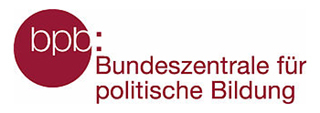
Activities
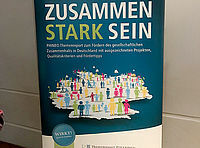
Our project Streitkultur 3.0 awarded with Phineo-Wirkt-Siegel
On 10 December our project Streitkultur 3.0 (Culture of Conflict 3.0) was awarded the "Wirkt-Siegel" seal by the German non-profit PHINEO. The seal is awarded to non-profits and projects that demonstrate effective social commitment.
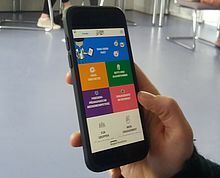
First dialogue labs with the new Learning App
The Culture of Conflict 3.0 Team carried out the first out of 25 dialogue labs. They took place in schools of Tübingen and the surrounding area of Baden-Württemberg.
The dialogue labs were conducted by the new Learning-App “Culture of Conflict 3.0” focusing on the two out of five focal points: “hatred on the internet” and “fake or fact?”.
The principle of the learning setting is always the same: Using their smartphones the participants navigate through the dialogue lab, working on different tasks online as well as offline supported by a facilitator. On the one hand, the project focuses on the thematic knowledge and the personal exchange within the group of the participants. On the other side, participants are encouraged to reflect about democratic values, opportunities for action and the question: What can one do for a peaceful coexistence on the internet?
Participants learn about different forms of counter speech and try to create their own counter action. Using examples of different contexts, participants deal with consequences of disinformation. In addition, the media literacy and information competence of young people are strengthened.
During the next months, three more thematic focal points will be developed on “Bots and Algorithm”, “responsibility on the internet” and “commitment on the internet”. These are also tested together with various groups in formal and non-formal education.
Schools and educational institutions can now apply for training courses free of charge.
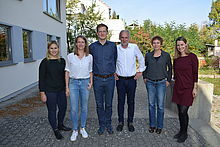
October 2018 – Second meeting of the project advisory board
After nearly one year project duration of Culture of Conflict 3.0, the agenda of the second meeting of the project advisory board included an exchange about the previous project activities and an expert discussion on the further implementation steps.
While the first meeting was mainly about the initial steps of the project, the second meeting turned on a common reflection of the previous project activities and experiences of the past year. The participants of the board provided expert feedback and subject-specific suggestions on the workshops with the youth council as well as on the animated films.
Additionally, they dealt with the realization of the dialogue labs, which will be offered for schools and in youth work, conducted by qualified youth (peers) and teachers. The project advisory board supports the Berghof team in the development process of the dialogue labs and the app that is used for the provision of the labs. Members agreed that with the dialogue labs the youth should be made aware of ethical considerations of the different topics of hatred and conflicts on the internet.
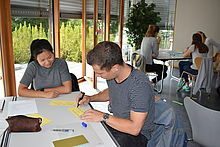
July 2018 - Contribution to a constructive culture of conflict in the internet
For the fourth time, participants of the youth council met in the context of the project Culture of Conflict 3.0. Under the heading of 'responsibility on the internet’, the participants dealt with the issues of big data and privacy and furthermore raised the question on how a peaceful co-existence can also be achieved digitally.
The first day of the workshop was accompanied by Jasmin Mühlbach, referent of erlebe IT by bitkom and was about the phenomenon of big data. First of all, basic concepts of big data were elaborated together with the participants. Subsequent to this theoretical introduction, they took part in a QR-code rally with their smartphone and therein practically dealt with the added value, but also the dangers and risks of the immense data collection. On the basis of a fictional scenario, the youth dealt with the topic of big data from various perspectives.
Jointly together with the project team of the Berghof Foundation, the participants developed approaches for responsible behavior in the internet on the second day of the workshop. The youth discussed the question as to what extent big data may violate privacy. Afterwards, they thought of ways for individuals to protect themselves against it. Following an input on conflicts in the internet, the participants debated possible values dilemmas in the internet and how a responsible dealing with these dilemmas should look like. In the end, the group developed an initial concept for making an explanatory movie to be used for the website www.frieden-fragen.de.
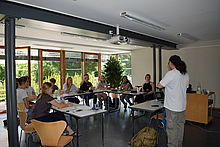
June 2018 - Workshop on the Influence of Bots and Algorithms
“I am often surprised that so much trust is being given to the Internet, since it can put democracy at risk”, said one participant of the youth council of the project “Culture of Conflict 3.0”. The statement illustrates the core of the workshop: the sensitization for a critical and reflected behavior in the internet.
For the third time, the youth council met in the context of the project. This time, the youth dealt with the question of how social bots and algorithms influence opinion making in the internet. Moreover, they discussed possible impacts of these particular phenomena on democracy and a pluralistic society.
Aytekin Celik, referent of the Media Academy Baden-Württemberg, accompanied the first day of the workshop. The participants dealt with possible consequences of artificial intelligence, algorithms and bots. In groups, they discussed the use of algorithms in areas like personnel decisions and police work. The second day was about the social consequences of social bots, algorithms and information bubbles. Everyone seemed to agree that these bubbles are dangerous because they can lead to a confirmation bias that reinforces particular worldviews and excludes other views and that it is hard to break out of their own information bubbles.
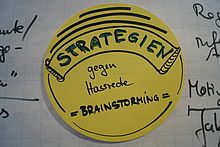
February 2018 - Second workshop in the project "Culture of Conflict 3.0"
Why is hate speech not an opinion? When is hatred violence? Moreover, what is important in dealing with hatred on the internet? Participants of the Youth Council asked these and many other questions in the context of the second workshop on "Hatred on the internet". A referent of the project "Love Storm - Together against hatred on the Internet" accompanied the first part of the workshop. The participants discussed what hate speech means, how concepts like digital violence, cyberbullying, digital harassment differ from each other and how the structures of the Internet can enable and even reinforce digital violence and hatred. With that in mind, they developed possible strategies against hatred on the Internet.
The second part of the two-day workshop covered the questions of what effects Hate Speech has on democracy and human rights and of how democratic values can be lived online. In a heated discussion, participants dealt with the recently adopted Network Enforcement Act and the underlying tension between freedom of expression and the protection of personal rights. Finally, a small group conducted a street survey on "Hatred on the Internet", while a second group developed an initial concept for making an explanatory movie to be used for the website www.frieden-fragen.de.
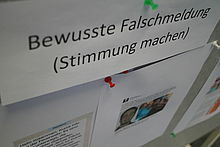
December 2017 - Reflection, exchange and outlook at the first meeting of the project advisory board
In December 2017, the advisory board of the project Streitkultur 3.0 held its first meeting, focusing on coming project steps and the future development within the project.
The project advisory board is composed of Dr. Ruth Festl (German Youth Institute, from January onwards Leibniz Institute for Knowledge Media, Tübingen), Dr. Maya Götz (Head of the International Central Institute for Youth and Educational Television at Bayrischer Rundfunk, Munich), Dr. Jessica Heesen (International Centre for Ethics in the Sciences and Humanities, Tübingen), Claudia Lampert (Hans Bredow Institute, Hamburg) and Dr. Nils Brüggen (JFF-Institute for Media Research and Media Education, Munich). The board supports the project with subject-specific input and expertise. During the first meeting, the project team and the advisory board mainly discussed different aspects of learning settings, the use of smartphones in schools and the potential creation of new digital learning spaces. Moreover, the focus was on the conception of dialogue laboratories, which aim at providing young people with a space for dialogue and encouraging them to negotiate new ideas and opinions.
November 2017 - First workshop launching the project "Culture of Conflict 3.0"
What is real and truth? How can one deal with masses of information in the internet? Participants of the newly formed Youth Council addressed these and other questions as part of the project "Culture of Conflict 3.0". Under the guidance of an expert from the media centre of Baden-Wurttemberg, the members of the council dealt with different types of fake news. Of particular relevance were ways with which young people can identify fake news, for example through the critical analysis of different sources of information, the usage of photographic material, as well as statistics. The participants recommended to be truthfully informed and to bring together facts from different sources. Jointly together with the project team of the Berghof Foundation, the youth finally developed an initial concept for making an explanatory movie to be used for the website www.frieden-fragen.de.
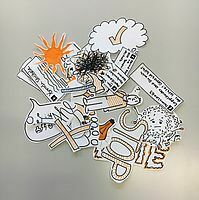
November 2017 – One-day workshop introduces in making cartoons
The second event of the project "Streitkultur 3.0: Gegen Hass im Internet" was focused on the conception and production of cartoons. 15 participants from the Youth Council learnt how to distinguish between different forms of explanatory films. With support of an expert (Silke Hilgers), the youth analyzed relevant elements of a film and specifically focused on the symbolization of speaker's texts. Moreover, they were introduced into the function of a storyboard, precise wording and the diversity of representing figures. Based on example topics, the youth developed their initial film script and filmed their designed cartoon in the production phase. During the workshop, the biggest challenge was a necessary timing of speaker's text and graphic materials.
October 2017 - Youth Council’s Initial Meeting
In the end of October, the Project 'Culture of Conflict 3.0"' started in Tübingen with a first meeting of the Youth Council. On this occasion, 22 students from five schools in Tübingen and Rottenburg came together to specify their areas of interests within the project.
The Youth Council members dealt with the five main thematic areas of the project, namely fake or fact, hate speech on the internet, internet bots and algorithms, critical media competence as well as personal engagement in the internet. The students then discussed essential points and remaining questions together. They all agreed that 'hatred is not an appropriate response to hatred', as one participant put it.
Over the next months, the members of the Youth Council will address the thematic areas in detail and will become more familiar with various didactic methods. During the workshops, the youth will develop contents and methods for so-called dialogue laboratories, which then will be carried out in schools and out-of-school youth work with a specially developed App. Explanatory films and a specially developed App play an important role.
What are social bots and how do algorithms affect us? See more in our video "Bots und Algorithmen".
How can we deal with hate speech online?
Fake or fact? Learn more about how to distinguish between the two in our video "Fake or Fact?"
Updates from this work:
Project lead
Nicole Rieber
Head of Unit
email hidden; JavaScript is required
Team members
Uli Jäger
Sonja Riester
Carolin Sokele
Media contact
You can reach the press team at:
+49 (0) 177 7052758
email hidden; JavaScript is required


